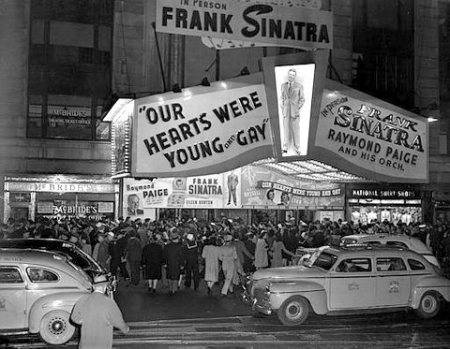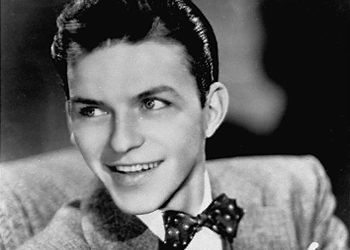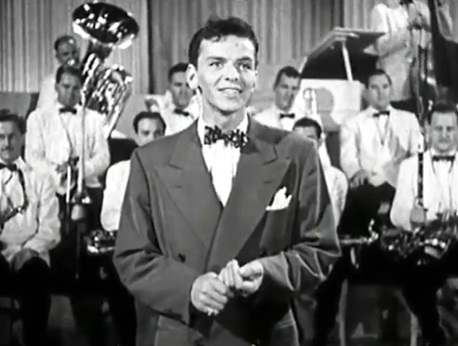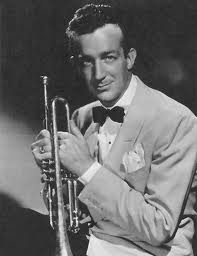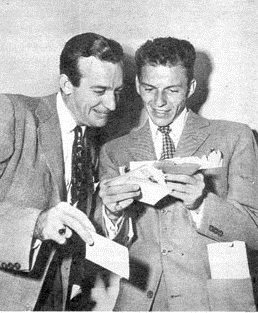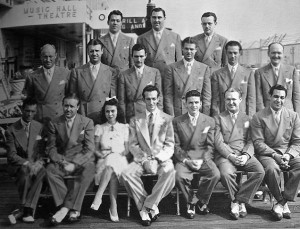Frank Sinatra at Paramount Theater
Frank Sinatra at Paramount Theater, how did it start?
After leaving Tommy Dorsey and his orchestra on September 1942, Frank Sinatra started looking for jobs as a singer at various places. He wasn’t a member of a band anymore, he was on his own. For two months, he had not been able to find a serious place. Many band vocals that left couldn’t make it, and Sinatra was to be one of them. Things were just like the times before he joined Harry James’ band. But in December 1942, things changed.
In December, the phone in Frank Sinatra’s house rang. It was Bob Weitman, the director of the famous Paramount Theater.
That night, when he was on stage after Benny Goodman in Paramount Theater, suddenly people started to yell and scream. People were like crazy. Jack Benny remembers that day as “I introduced Sinatra and I thought the goddamned building was going to cave in. I never heard such a commotion with people running down to the stage, screaming and nearly knocking me off the ramp. All this for a fellow I never heard of.”
Frank Sinatra: “The sound that greeted me was absolutely deafening. It was a tremendous roar. Five thousand kids, stamping, yelling, screaming, applauding. I was scared stiff. I couldn’t move a muscle. Benny Goodman froze, too. He was so scared he turned around, looked at the audience, and said, “What the hell was that?”
That night was so good that Paramount Theater extended his show first to a month, then to two months. And it was not like some regular show. They used to do 6-7 shows a day. One Saturday, Frank Sinatra did eleven shows, starting at 8:10 am and finishing at 2:30 am next day.
Nick Sevano: This time, they threw more than roses. They threw their panties and their brassieres. They were nuts, absolutely nuts. (When Sinatra returned to Paramount Theater)
On June 7 1943, he was going to sing in the studio of Columbia Records for the very first time, and his years known as “Columbia Years” was to start, slowly bringing an end to the big band era…

